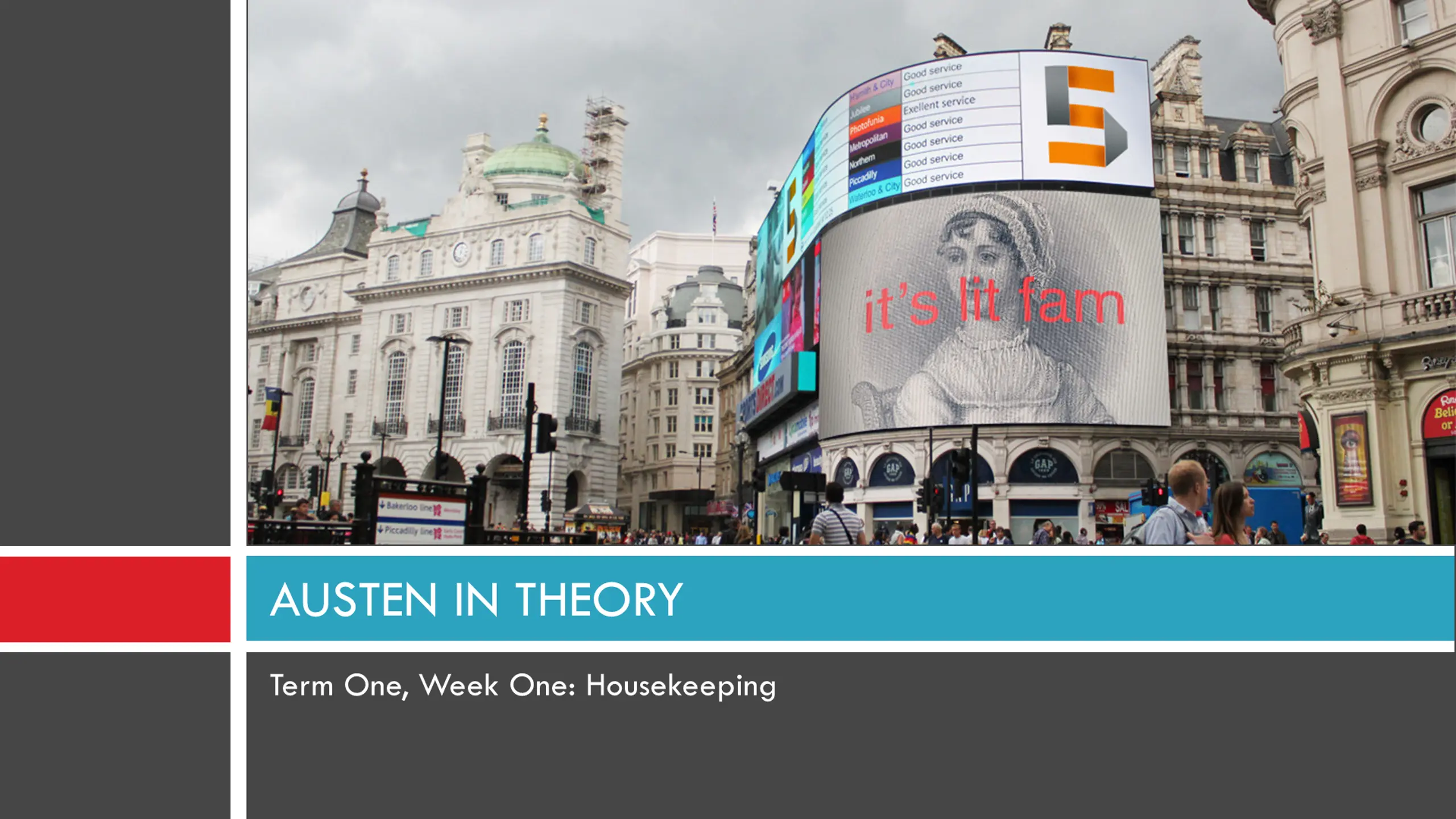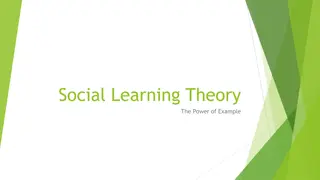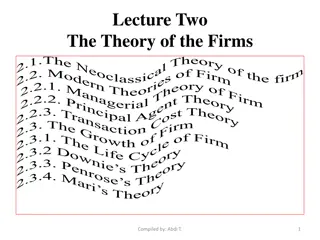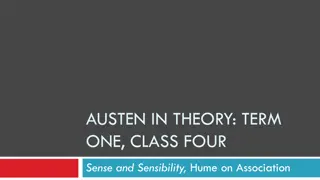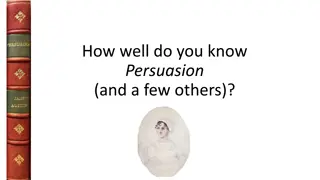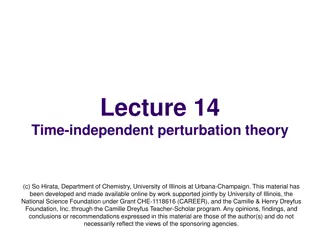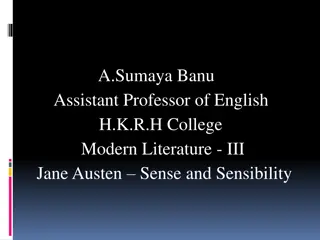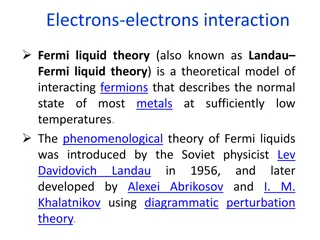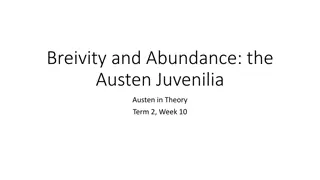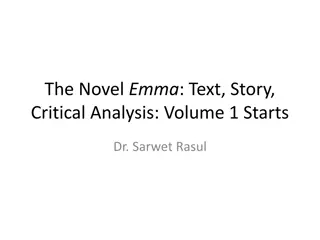Austen in Theory
The housekeeping information for the Austen in Theory course, including paper deadlines and prompt details. Students will explore Austen's novels in relation to philosophers such as Locke, Hume, Smith, Burke, or Wollstonecraft.
Download Presentation

Please find below an Image/Link to download the presentation.
The content on the website is provided AS IS for your information and personal use only. It may not be sold, licensed, or shared on other websites without obtaining consent from the author.If you encounter any issues during the download, it is possible that the publisher has removed the file from their server.
You are allowed to download the files provided on this website for personal or commercial use, subject to the condition that they are used lawfully. All files are the property of their respective owners.
The content on the website is provided AS IS for your information and personal use only. It may not be sold, licensed, or shared on other websites without obtaining consent from the author.
E N D
Presentation Transcript
AUSTEN IN THEORY Term One, Week One: Housekeeping
Housekeeping Papers are due Friday, T1W10 and T2W10 (9 December 2022 and 7 March 2023) Intermediate papers 3,500 words, final year 4,000 words Any edition is fine, but I use Oxford World s Classics if you want to keep up with page numbers
First Paper Prompt Provide an argumentative account of one Austen text in terms of one philosopher read in the course in term one: Locke, Hume, Smith, Burke, or Wollstonecraft. Address some aspect of the novels as novels. The best papers will address some aspect of narrative method, certainly in the novel but also possibly in the philosopher as well. Your focus should not be simply on showing how Austen reflects the philosophical text, but also on how the novel of your choosing pushes back on it: provides an additional or different perspective on the aspect of aesthetics, ethics, moral, or social conduct present. It is mandatory that second-year students run their idea for the paper past the instructor via email, no later than the end of the sixth week of term. Third-year students are not required to do so, but of course may (and are encouraged to) if they wish.
Extra events (optional) 12 January, 1pm, room TBD: Austen Letters Day 25 February, 11am: London Austen Walk (signup sheet with details online soon)
Preamble and Major Course Theme I.e. the style is part of the point
The Windhover To Christ Our Lord I caught this morning morning's minion, king- dom of daylight's dauphin, dapple-dawn-drawn Falcon, in his riding Of the rolling level underneath him steady air, and striding High there, how he rung upon the rein of a wimpling wing In his ecstasy! then off, off forth on swing, As a skate's heel sweeps smooth on a bow-bend: the hurl and gliding Rebuffed the big wind. My heart in hiding Stirred for a bird, the achieve of, the mastery of the thing. Brute beauty and valour and act, oh, air, pride, plume, here Buckle! AND the fire that breaks from thee then, a billion Times told lovelier, more dangerous, O my chevalier! No wonder of it: sh er pl d makes plough down sillion Shine, and blue-bleak embers, ah my dear, Fall, gall themselves, and gash gold-vermilion.
It is a truth universally acknowledged, that a single man in possession of a good fortune, must be in want of a wife.
Free indirect style/discourse Tags indicating she thought/he said disappear To use term from linguistics, centre of evaluation is uncertain (Morini, 2009) It gets pretty profound (and potentially, trippy)
Other features Long stretches of dialogue where narrator withdraws (again, no evaluation within text) Letters between characters, presented as socially thick objects writing bearing traces of the society that produced (and continues to produce) it
Reading Austen now Emma chapter XVII, Jane Fairfax to Mrs. Elton: But, my dear child, the time is drawing near; here is April, and June, or say even July, is very near, with such business to accomplish before us. Your inexperience really amuses me! A situation such as you deserve, and your friends would require for you, is no everyday occurrence, is not obtainedat a moment s notice; indeed, indeed, we must begin inquiring directly. Excuse me, ma am, but this is by no means my intention; I make no inquiry myself, and should be sorry to have any made by my friends. When I am quite determined as to the time, I am not at all afraid of being long unemployed. There are places in town, offices, where inquirywould soon produce something Offices for the sale not quite of human flesh but of human intellect. Oh! my dear, human flesh! You quite shock me; if you mean a fling at the slave-trade, I assure you Mr. Suckling was always rather a friendto the abolition. I did not mean, I was not thinking of the slave-trade, replied Jane; governess-trade, I assure you, was all that I had in view; widely different certainly as to the guilt of those who carry it on; but as to the greater misery of the victims, I do not know where it lies. But I only mean to say that there are advertising offices, and that by applying to them I should have no doubt of very soon meeting with something that would do. Something that would do! repeated Mrs. Elton. Aye, that may suit your humble ideas of yourself; I know what a modest creature you are; but it will not satisfy your friends to have you taking up with any thing that may offer, any inferior, commonplace situation, in a family not moving in a certain circle, or able to command the elegancies of life.
Why is this on here? Sets JA among intellectual history version of her contemporaries Weirdly satisfying book in its lining up of schools of thought and people I m not sure if I totally agree with premise that Jane Austen was conservative we ll get into this but I don t think it s wrong as a reading of one tendency in JA Smart about Austen s groupthink (persuasion) ability of a place to compel individuals to think and see in a particular way
Major points Austen borrows techniques from writers on all sides of the contemporary political spectrum Some were conservative (Burke) and some radical (Edgeworth)
Jane Austen and the War of Ideas (1975) Actually controversial in its day see introduction if interested Reading literature politically is stubbornly controversial in, ahem, some quarters sets out to show that the novels of Austen s day, hers included, were full of signs which conveyed opinions. (xiv) Academic feminism in part starts in English departments: compare A Literature of their Own (1979), The Madwoman in the Attic (1979)
Some initial questions Do we think individually, or do we think in groups? Are people innately right, or innately wrong? Do Austen s novels prefer individual sense or group opinion? Do they prefer individual reason or ideas tempered by others?
Key term: SENTIMENTALISM Argument as factual claim: The anti-sentimental writing of Jane Austen has been taken as primarily burlesque of a style (8) Among the most controversial positions of the sentimentalism in the eyes of the next [i.e. Austen s] generation was his proposition that man s instincts were good. (8) Why controversial?
Key term: INTUITIONISM Basic question: do we trust our own thinking? Intuition as uncorrected personal thinking; rationalism as socially-conditioned thinking ( its suspicion of the uncontrollable workings of the unconscious mind [33]) Where does Austen stand on intuition?
ANSWER Jane Austen and Burke had in common their social conservatism, but in manner they were antithetical. (95)
Burke, Reflexions on the Revolution in France (1790) vs. liberalism Burke: Only the perverted think in terms of their selfish individual rights or advantages. It is only by obeying his deepest instincts, which are social, and by mistrusting his reason, which may delude him with false notions that man can achieve happiness and fulfill his nature (37)
Godwin, intuition He minimizes those aspects of man s nature which limits the freedom of his mind, such as the pleasures of the senses, tastes, and involuntary affections , which include emotional attachments to family and friends. (41) So: pro-intuition; he just thinks our intuition is innately anti-family, unlike Burke, for whom intuition is pro-family
Key term: SELF-ASSERTION Caleb Williams: an attempt at an objective portrait of the struggle between the conscious and the unconscious, the individual s need for self-assertion and the complex pressures of society (58) few words are wasted on the physical setting, or landscape, two elements which afterwards become important for writers who focus on their central characters irrational fears (60) Private life vs. public life
Robert Bage (a.k.a. Who?) In one sense or another he shared his contemporaries awareness and fear of the power of organized society, which is often most effectively exerted in the moulding of opinion. (87)
Mrs. [Jane] West (a.ka. Who? 2) Like other conservative moralists, Mrs. West denigrates the individual s reliance on himself. She shows for example how dangerous it is to trust private intuition or passion in forming judgments. The same discovery that objective evidence should be preferred to private intuition is made by a succession of Jane Austen heroines (101) If feeling is an unreliable aid in choosing a husband, it is equally wayward as a general guide to conduct. (101)
Maria Edgeworth She had seen with her own eyes how a rational, well- intended individual could be browbeaten by a tyrannical majority. (126) Her novels promote an inner life of continuous discrimination and ethical choice (131) domestic comedy, centring on a heroine, in which the critical action is an inward progress towards judgement (145)
Questions (take 5 mins, work in threes) I know, right? How is this unlike Austen s other texts? (and, how like?) Style Plot Outcome
